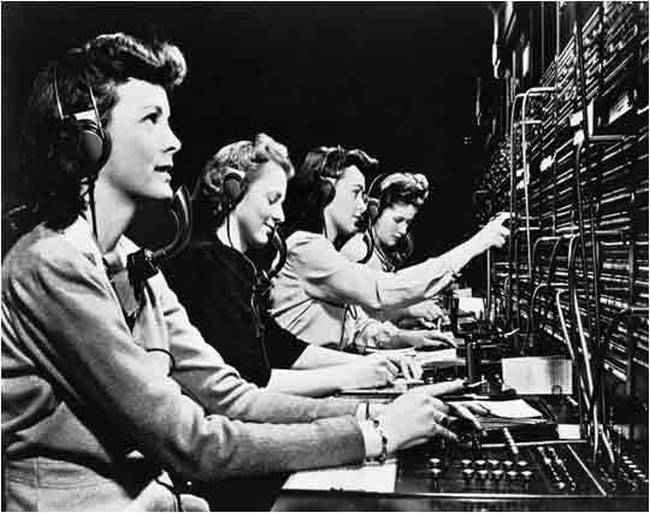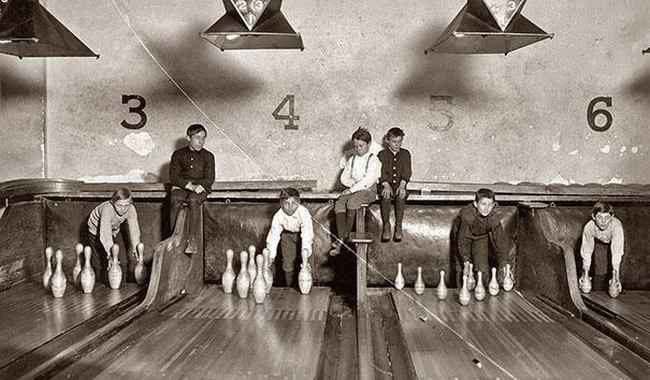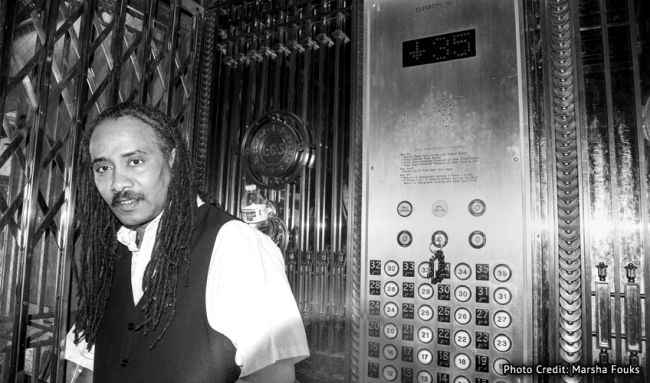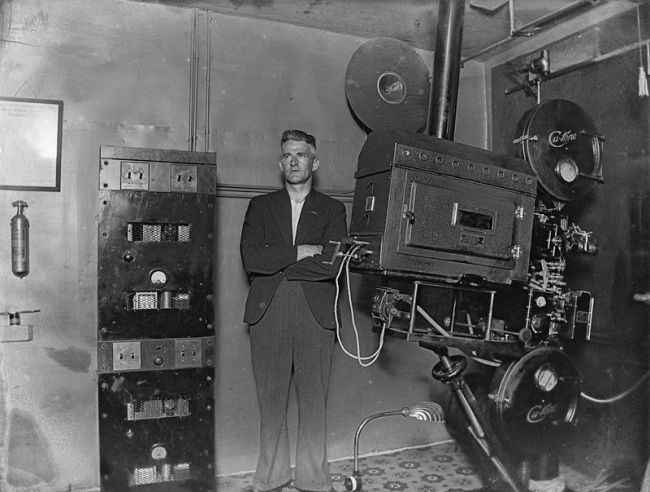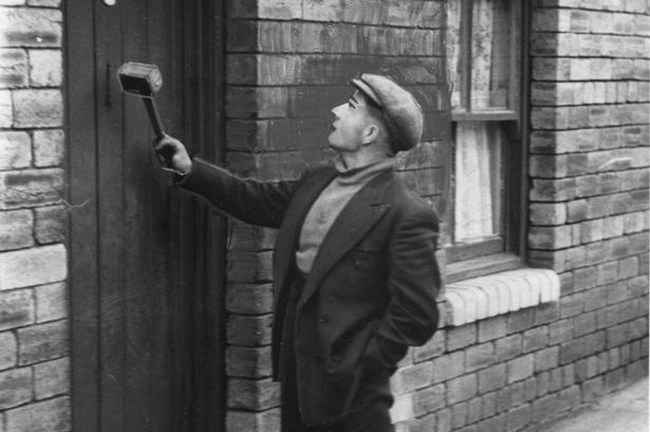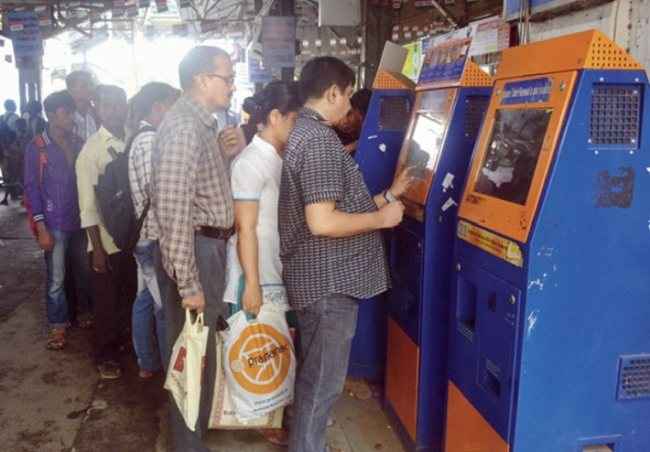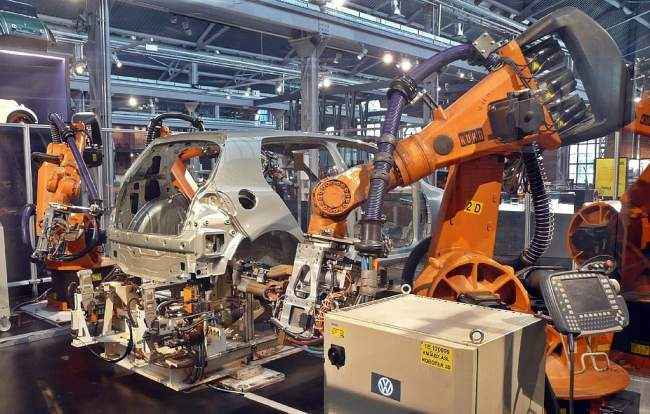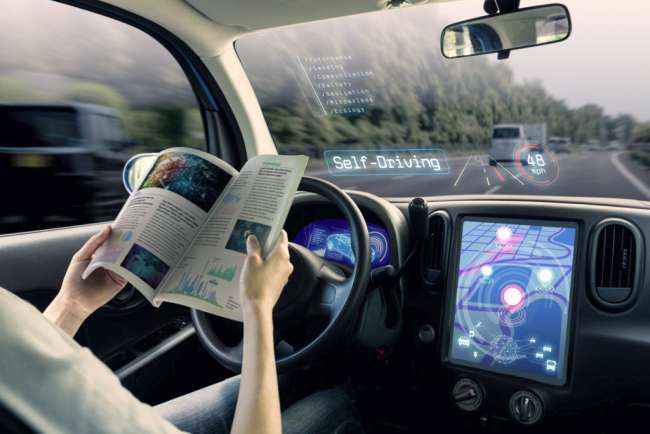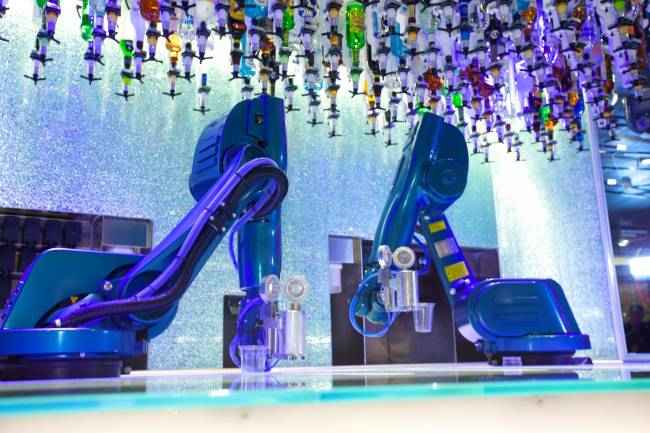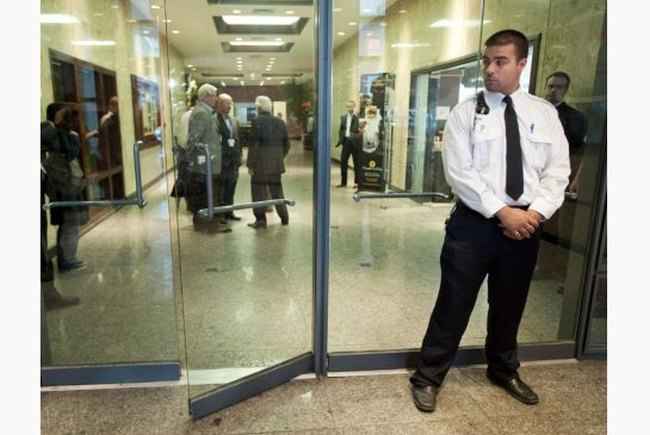18 jobs that have or will be totally taken over by technology

The dynamic nature of technology makes it so that a lot of jobs that were or are taken up by humans become obsolete since technology expedites these processes. Companies are constantly looking for ideas to save money, therefore, the idea of technology replacing humans is rather enticing since they can work 24×7 and require little to no pay. Machine learning and artificial intelligence are handy in jobs that are repetitive in nature since computers can learn the tasks in a shorter time than humans can and perform them with fewer mistakes. These are 18 jobs that have or will be completely taken over by technology.
Switchboard operator
The days of manual telephone switchboards have long passed us. In the olden days, someone working as a switchboard operator would physically connect calls by sliding in phone plugs into the relevant jacks. While switchboard operators still exist in some organisations today, they merely oversee the system which has now become completely computerised.
Bowling alley pinsetter
Machines that pick up fallen bowling alley pins and rearrange them seem quite ordinary these days, as well as the computers that keep a tally of the score on a screen. However, these jobs were done manually back in the 50s and 60s. A bowling alley pinsetter would be posted at the end of the alley and would manually pick up all the pins and rearrange them every turn.
Lift operator
In India, you still find plenty of elevator operators today as well, even though the technology we have now doesn’t require them to be there. Perks (or not) of an overpopulated country, you could say. However, lift operators were required back in the day because they couldn’t perfectly halt on the level you wanted. Instead, the lifts were manually controlled using a large lever.
Film projectionist
Back in the day, a film projectionist was required to run mechanical projectors with the 35mm celluloid rolls. However, now we have digital projectors, so anyone working in the cinema hall can load the movies into them. Therefore, this career path died out, although there are still some arthouse cinemas in other countries that have 35mm projectors to show classic films.
Knocker-upper
This is a funny one. Previously, when we didn’t have any form of alarm clocks, people (in the 1920s) relied on knocker-uppers. These were people who were specifically employed to wake up people from their slumber by using a truncheon or a long stick to hit your window until you woke up. Then came the wind-up clocks, the digital alarm clocks and now, the smartphone.
Check-out cashier
Self-service checkouts are becoming increasingly common in countries like the UK, where it can be found in almost every supermarket. Only a couple of operators are required to manage a dozen checkouts when self-service checkout is in use. They aren’t just confined to small basket shops but also huge supermarkets with full self-service checkouts that either use conveyor belts or a handheld scanner. While this practice isn’t common in India yet, it will infiltrate this massive market as well soon.
Railway station ticket seller
While you can still find a lot of railway station ticket sellers in India, they are slowly being replaced by the ATVM machines which automatically generate railway tickets for the user. It’s only a matter of time before all tickets can be booked online and collected from these self-operating machines.
Factory worker
The number of human employees in factories is falling sharply since the technological intervention in this field began which enables machines to take on the repetitive heavy labour. Robots can carry out the majority of the tasks in factories on their own, therefore requiring minimal human supervision.
Manual transporters
A little over a hundred years ago, there were hundreds of jobs related to manual local transportation which included operating horse-drawn carriages, bullock carts, and more. Even today, we have hand-pulled rickshaws that are common forms of local transportation in cities like Kolkata. However, technological innovation and the variety of cheap mechanical transportation options like rickshaws, two-wheelers, E-rickshaws and more are making the job of manual transporters obsolete.
Flight trajectory calculators
NASA used to actually employ human ‘computers’ to help calculate the trajectory of flights which eventually helped get spaceships into the atmosphere. However, today we see that the aggregate computing power of humans from that era is significantly dwarfed by even the smartphones sitting in your pocket.
Drivers
With technologies like assisted driving in Tesla cars and automated Uber test cars, we are not too far away from Level 5 or maybe even Level 6 autonomous cars that require almost no human intervention. This could replace millions of bus, taxi, truck, and other drivers in the future as self-driving cars become more and more common.
Phone operators, receptionists, and telemarketers
Automated telemarketing calls have become the norm now and we all have been on the receiving end of them at some point or the other. As voice recognition and speech synthesis get more advanced, companies can implement these systems in telemarketing and receptionist roles. It will get harder with time to tell the difference between real humans and automated robot callers.
Journalists
News agencies and websites around the world are already employing computer writers and other information gathering software. The chances that you are actually reading a news story on the Internet that is generated by a computer are increasing steadily. As software becomes smarter, technology will replace even more journalists and reporters in the years to come.
Pilots
As drones become more state-of-the-art, they will be adapted to fields like replacing human pilots of cargo planes which are used by companies like FedEx and UPS. The US military has already begun making use of autonomous drones to conduct surveillance and even attacks. Multiple companies are also researching replacing their fleet of pilots with computer-assisted pilots that can be remotely controlled.
Bartenders
Multiple companies are working on as well as implementing solutions that can replace human bartenders that serve alcohol or non-alcoholic drinks. Services like Briggo are even replacing baristas. They are smarter than their human counterparts because they can learn and store data about how to make your favourite drink.
Stock traders
The stock market is already filled with computers that are already making and selling stocks online and have effectively replaced many stock trader jobs around the world. In the past, there were several stock traders who were experts in this field, however, today computers are becoming the new stock trading experts.
Soldiers and guards
Militaries are presently researching and creating robots that can be used to replace human ground-level soldiers. These robots can be deployed to protect an area, help soldiers carry heavy gear and detect and attack enemies. Companies are also developing security robots that patrol areas at night. Knightscope is one such robot that can see, hear and even smell dangers in the area it is guarding.
Travel agents
Before the advent and popularisation of the internet, many people worked as travel agents who would help find, arrange and book the best packages and deals for traveling. However, today with the internet and computers, customers do not need this middleman and can complete the entire process, undertaken by travel agents previously, by themselves.
Want to read more of our exciting anniversary-special lister articles about all things tech, science, culture, and alt? Head over to store.digit.in and get yourself the Digit Anniversary Special issue (June ‘19) which has 18 more rousing articles and much more.
Dhriti Datta
Perpetually sporting a death stare, this one can be seen tinkering around with her smartphone which she holds more dear than life itself and stuffing her face with copious amounts of bacon. View Full Profile

